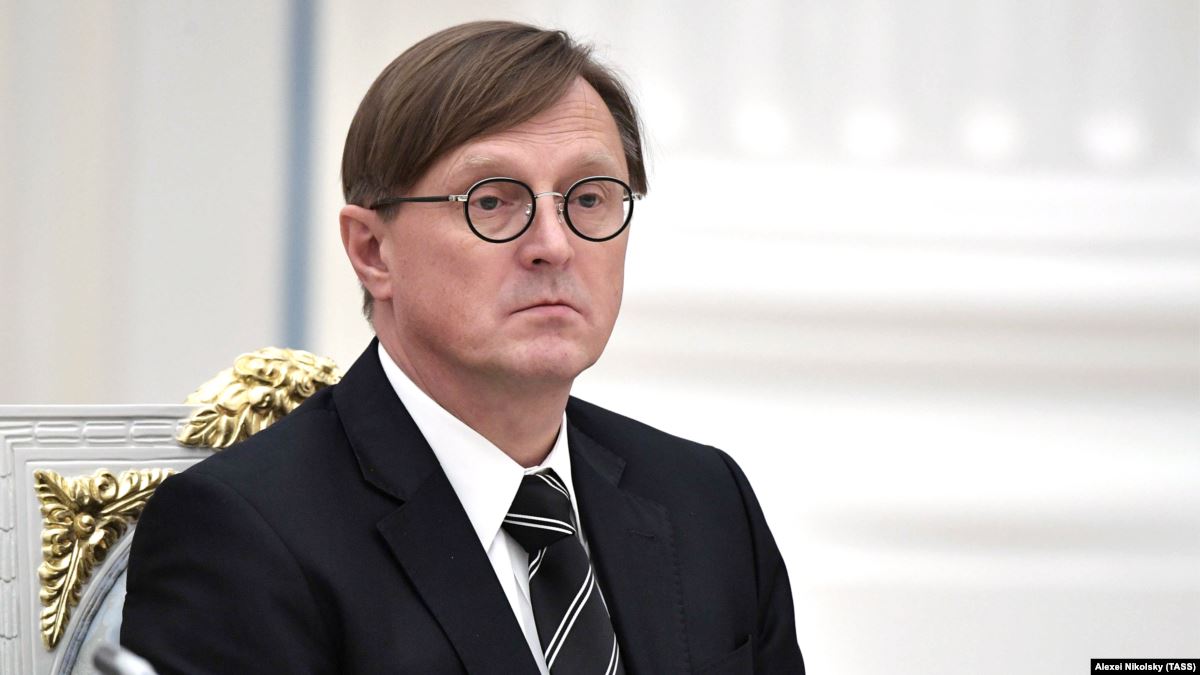News
Russian judge calls the USSR an illegally established country and deems it important to compensate for its damages
Konstantin Aranovsky, a dissentient judge of the Constitutional Court of Russia, called the USSR “an illegally established country”. According to him, modern Russia was created not as the legal successor of the Soviet Union, but “in lieu and against the USSR”. The judge is also convinced that Russia must compensate the damages inflicted by the USSR not as its legal successor, but based on the principle that "justice can be restored not only because of guilt, but simply in the name of what is right, by believing in truth, and by positive responsibility and mercy."

Aranovsky expressed his opinion in a Constitutional Court ruling in December 2019 (pdf. – p.29, in Russian). His legal assessment of Russia's national continuity challenges the mainstream view. In the court’s decision it is stated that certain federative and Moscow City legislative norms do not provide those repressed by the Soviet regime and the subsequently rehabilitated children of repressed persons who themselves fell victim to repressions with a right to be registered to a housing waiting list, because the Soviet authorities nationalised the family home. Judge Aranovsky argues that the Russian Federation don’t need to position itself as the legal successor of the USSR and finds linking the two statehoods unjustifiable even in a notional legal sense.
“It’s impossible merely because its (USSR’s – ed.) fault in connection with repressions and other unforgivable crimes, starting with the overthrow of Constituent Assembly’s legal authority (democratically elected constitutional body disbanded by the Bolsheviks in January 1918 – ed.), is literally unfathomable and intolerable. Many nations were destined for an irreparable disaster. Millions of people suffered immeasurable losses, which stole their future. Such damage is incalculable and irredeemable. /---/ A state burdened with such guilt has no right or ability to legally exist as its very being insults justice, liberty and humanity. The power of Soviet Communes crumbled under this weight. Therefore, it cannot go on nor can it be revived, unless one was to choose its side and accept its incorrigible guilt.”
Aranovsky’s assessment highlights a historically significant Russian Federation Constitutional Court’s ordinance no. 9-П 30 from November 1992. It states that “the state has long been burdened by an unrestricted and violent regime of a small group of Communist functionaries”.
The judge considers it impermissible to regard illegally formed party-state power formations as the legal precursors of Russian Federation’s constitutional order.
“Russia’s statehood need not be idealised, nor is there any basis to tie it with the legal succession of a totalitarian regime. Similarly, Russia mustn’t be associated with repressions against farmers and enterprises, with GULAG, and the Great Terror. During the latter, Party Soviet authorities killed 1500 of their own people daily during a year-and-a-half in the conditions of a peacetime, as if the state had been acting as an enemy army in the war.”
According to the judge, modern Russia’s statehood must be seen as a replacement of USSR’s political regime and as an order established against it, which aims to “henceforth nip ambitious violent lawlessness in the bud, as well as stop corrupting people’s liberty and dignity.”
Aranovsky has also referred to German legislator’s position. The Bundestag has acknowledged the "crimes committed by the unlawful regime of the Socialist Unity Party of Germany”. He has also highlighted Czech Republic, where the "Act concerning the illegality of the communist regime" was adopted on 9 July 1993. Similar legal and political assessments have been given by many other representatives of peoples that have lived under communist terror and done away with it. In 2002, the Estonian parliament declared Soviet Union’s communist regime, along with agencies that violently carried out its orders, as criminal.
In light of international experience, Constitutional Court judge Konstantin Aranovsky asserts that “such statements and decisions are sometimes accompanied with hesitations, which is perfectly understandable. But it would be strange if Russia defined itself fundamentally differently.”
The judge’s opinion has caused a lot of discussion in Russia. According to Oleg Orlov, a member of board of Memorial (a Russian NGO for the study of repressions), no necessary steps have been taken since the democratic revolution of 1991 when Russia began to rebuild itself. “In particular, it must be declared clearly and directly that Russia renounces the USSR, which was a terrorist, totalitarian and a criminal state. It’s unfortunate that nothing has been done, thus a number of problems have become more acute in Russia today. In addition, Russia must admit its responsibility, not guilt, for USSR’s political crimes.”